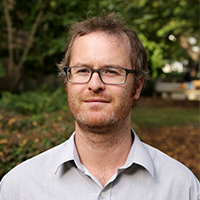Can civil disobedience ever be justified in a democracy? How does Extinction Rebellion relate to other social movements in history that have also practiced civil disobedience to advance social progress? In this presentation Dr Samuel Alexander examines these questions and presents an analysis he calls the ‘rebellion hypothesis’.
This is Part VII of the Ecological Civilisation series.
00:00 – Introduction
00:47 – Review of ecovillages
04:37 – Review of the land barrier
06:43 –The Rebellion Hypothesis
30:42 – Examining Civil Disobedience
37:50 – XR and civil disobedience
45:10 – Conclusion
The introduction to this series is available here:
https://www.youtube.com/watch?v=WxC-r…
The series is grappling with the problems of consumerism and the growth economy; envisioning alternative, post-carbon ways of life; and considering what action can be taken, both personally and politically, to help build an ecological civilisation.
New presentations will be added to this playlist over time:
https://www.youtube.com/playlist?list…
You can support this channel by purchasing an e-book from the Simplicity Institute, available on a ‘pay what you can’ basis (edit the price as you choose for a donation):
In the link above there is a book on Extinction Rebellion.
Paperbacks are available here:
https://au.permacultureprinciples.com…
Samuel Alexander’s work is available here:
The Simplicity Institute website is here:
https://simplicityinstitute.org
Thanks to Andrew Doodson, Jordan Osmond, and Antoinette Wilson for offering invaluable production advice.
The opening image is kindly provided by Melissa Davis.
Further image references are available here: http://samuelalexander.info/image-ref…
The music is provided by Mortimer’s Method: https://mortimersmethod.bandcamp.com
Teaser photo credit: This Civilisation is Finished bookcover






